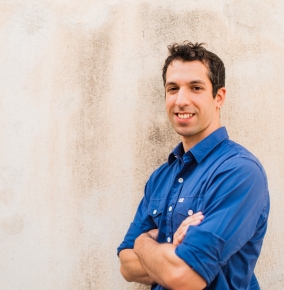Theodoros Tsiligkaridis

How did you get interested in your field of study?
I had a strong inclination towards mathematics from early on, which led me to pursue electrical engineering in college. What drew me in was both the elegance of the mathematical foundations of signal processing and wireless communications, and their applications to real systems. In graduate school, I entered the field of machine learning and statistics, which I mainly work on today.
What achievement are you most proud of from your time working at the Laboratory?
A standout personal achievement while at the Laboratory was starting the first machine learning program on opportunistic spectrum access. The problem that this program addressed was how to find and exploit unused portions of the electromagnetic spectrum for new wireless communications without disrupting other active communications activities. I consider this a great personal achievement because my team was able to demonstrate, as a simulation, that this method could work much better than conventional techniques.
Why is the work that you do in AI important?
AI needs to be capable enough to maintain its performance in the real world while avoiding unpredictable behavior. It must also interface with humans in a meaningful way. Building trustworthy AI systems requires equipping AI models with the ability to know when they are likely to fail, to maintain robustness and resilience, and to explain predictions. This is an important area as it’s widely agreed upon that AI must be designed and used in a responsible manner to increase public trust, and avoid physical harm and denial of opportunity.